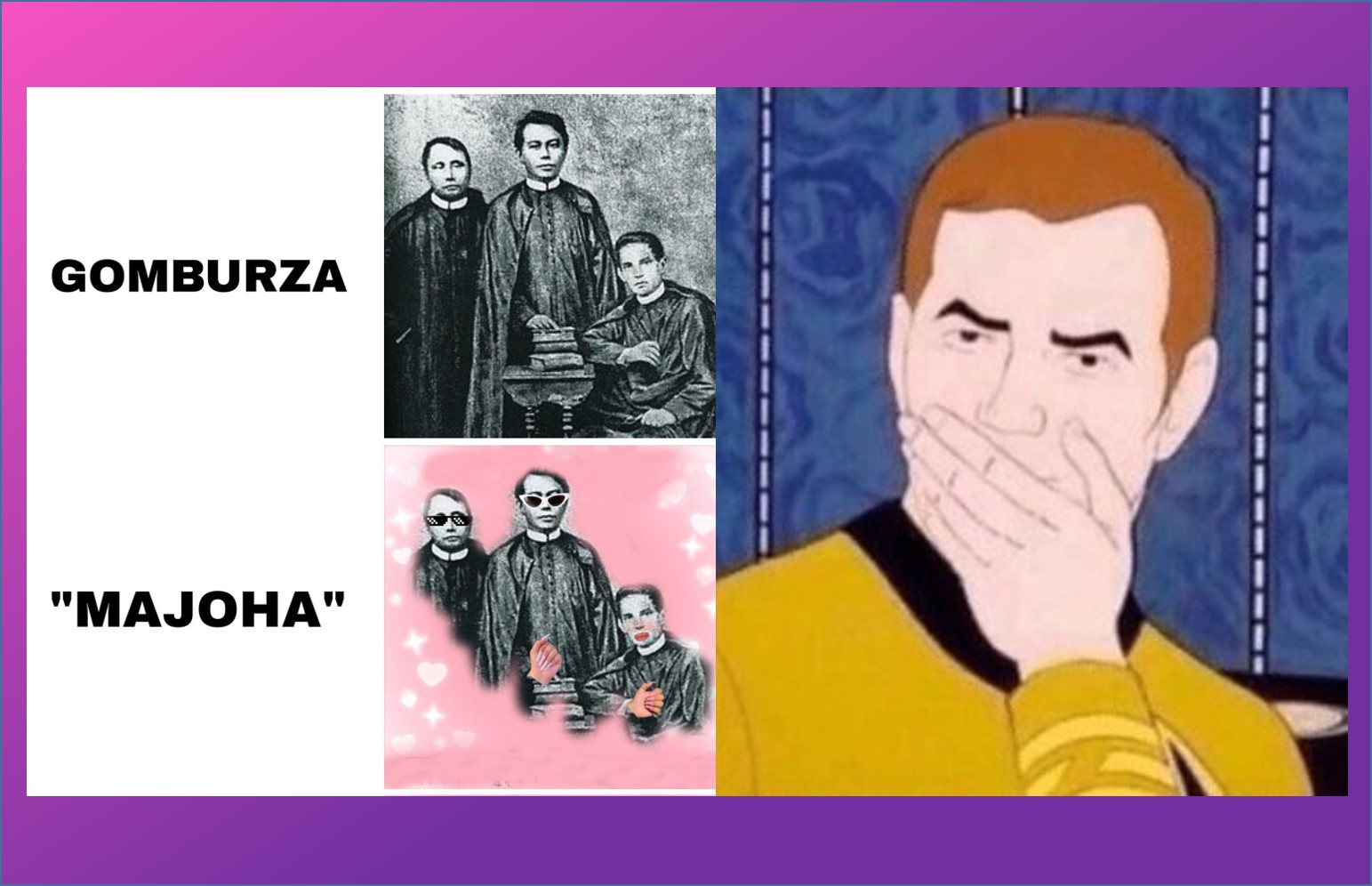*cue Hermione Granger voice* It’s Gomburza, not MaJoHa…
When people were suddenly greeted online with trending historical hashtags accompanied by a Pinoy Big Brother quiz bee, a Philippine history refresher–paired with heated discourse–was bound to happen.
While seemingly funny, the internet was frustrated to learn that PBB Teen housemates could not correctly answer host Robi Domingo’s questions surrounding basic Philippine history.
One question in particular grabbed the attention of people online. When asked about the commonly known alias for Mariano Gomez, José Burgos, and Jacinto Zamora (to which the answer is Gomburza), they mistakenly went for “MaJoHa.”
The housemates also failed to answer what José Rizal’s famous nickname is (Pepe) and what the longest bridge in the Philippines is called (San Juanico Bridge).
Snippets of the PBB quiz bee are all over social media, and these have elicited violent reactions from fellow Filipinos, calling it “alarming” and “concerning” that some of the most basic and renowned names in Philippine history have been easily forgotten by the youth.
Many even argue that the youth these days are more exposed to ill-informed media, creating an ominous disconnect from our Filipino roots.
Host Robi Domingo even expressed his disappointment, pushing for reinventions in the education system:
Sa una, nakakatawa pero habang tumatagal, di na nakakatuwa. Sana maging daan ito para makita kung ano ang kakulangan sa sistema ng ating edukasyon.
Sa lahat ng content creators, let's battle #MaJoHa. https://t.co/EWee7uZvZ5
— Robi Domingo (@robertmarion) April 12, 2022
However, people were quick to refute Domingo’s statement, saying that the Philippine education system is not entirely at fault:
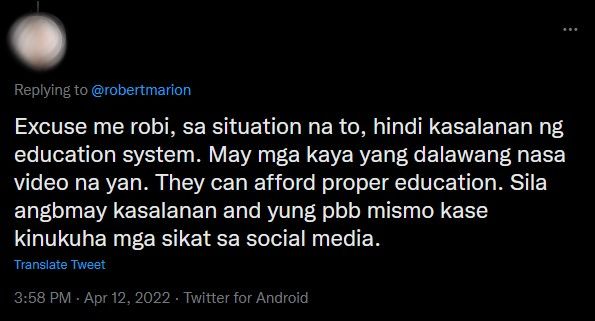
It’s difficult to deny that some history subjects at school give more attention to the memorization of details rather than actually understanding the events of the past. If anything, this just goes to show that the real learning happens outside of the classroom.
After all that has transpired around the recent PBB mini-gameshow, the question remains: who is truly responsible for the youth’s lack of knowledge on Philippine history?
With the 2022 National Elections just days away, discourse around the quiz bee was much more tense and amplified. Some seized the opportunity to speak out against historical forgetting and revisionism:
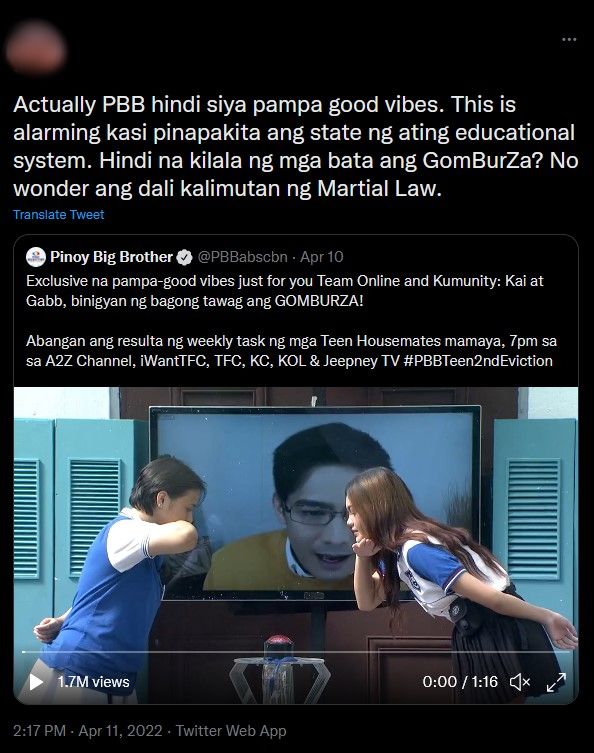
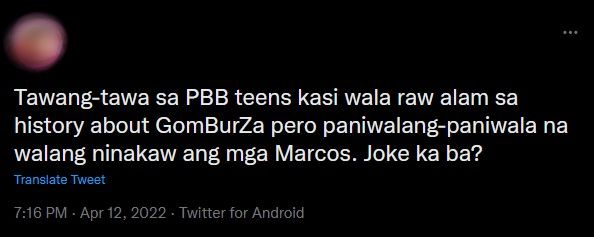
As misinformation spreads like wildfire during campaign season, people are fighting against this and further educating the public on why learning history is of paramount importance. Attempts to inform voters on historical events such as Martial Law are rampant in online platforms, especially now that the next seats for President and senatorial slate are up for grabs.
This has also sparked the #LigtasNaBalikEskwela movement, urging DepEd to finally open all schools for face-to-face classes. It has been proven difficult to monitor students’ academic progress and information retention through online learning. Academic institutions, parents, students, and teachers alike are just itching to step on campus grounds ASAP.

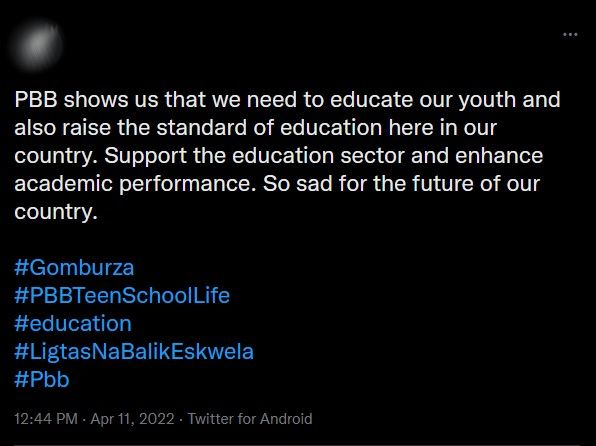
People of the internet made it clear that at the end of the day, it is our responsibility to stay educated and informed on historical events, especially those who have access to such education.
Keeping history in mind is one of the best ways to support our votes this coming elections. It is truly the most potent time to open our eyes and see Philippine history as testament to what our nation has gone through, and more importantly, the lessons we and the people before us have learned throughout the years.
Other POP! stories you might like:
Commentary: The ‘F’ in Filipino means ‘forgetful,’ to a fault
Are Filipino workers always exploited for their labor?
Here’s how you can manage your mental health during this sizzling election season

